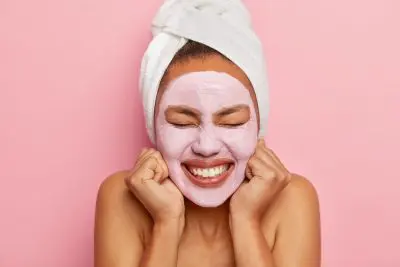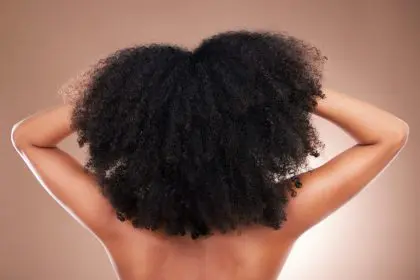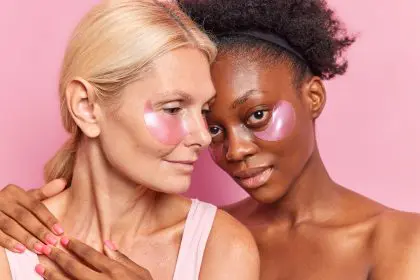You’ve spent hundreds on hair products promising to solve your dry, oily, or damaged hair problems, but the most effective treatments might already be sitting in your kitchen pantry. Natural remedies have been solving hair issues for thousands of years before commercial products existed, often providing better results than expensive salon treatments because they work with your hair’s natural chemistry.
The key to successful natural hair care lies in understanding which ingredients address specific problems and how to use them properly for maximum effectiveness. These time-tested solutions can transform problematic hair without the harsh chemicals that often worsen the issues they claim to fix.
Apple cider vinegar restores scalp balance
Apple cider vinegar works as a natural clarifying treatment that removes product buildup, balances scalp pH, and smooths hair cuticles for increased shine and manageability. The acidic nature of ACV helps close hair cuticles that have been raised by alkaline shampoos and styling products.
For oily hair and scalp issues, apple cider vinegar helps regulate sebum production while removing excess oil and dead skin cells that can clog follicles and create scalp irritation. Regular ACV rinses can reduce dandruff and itchy scalp conditions naturally.
Mix one part apple cider vinegar with three parts water and apply after shampooing, focusing on the scalp and working through to the ends. Let it sit for 2-3 minutes before rinsing thoroughly with cool water to seal the cuticles and enhance shine.
Use ACV treatments once or twice weekly for oily hair, or monthly for normal to dry hair types. The strong smell dissipates quickly as hair dries, leaving behind smoother, shinier strands without chemical residue.
Coconut oil penetrates deeper than surface treatments
Coconut oil contains lauric acid with a unique molecular structure that allows it to penetrate the hair shaft rather than just coating the surface like many other oils. This deep penetration helps repair damage from the inside while providing protective benefits.
For dry, damaged hair, coconut oil treatments can restore moisture and flexibility to brittle strands while reducing protein loss that occurs with regular washing and styling. The oil fills in gaps in damaged cuticles and strengthens hair against future breakage.
Apply coconut oil to damp hair from mid-length to ends, avoiding the roots unless you have very dry scalp conditions. Leave on for at least 30 minutes or overnight for intensive treatment, then shampoo out thoroughly using a clarifying shampoo if needed.
Coconut oil works particularly well for coarse, curly, or chemically treated hair that needs intensive moisture, but can be too heavy for fine or oily hair types. Start with small amounts and adjust based on your hair’s response.
Aloe vera soothes irritation while moisturizing
Fresh aloe vera gel provides natural moisturizing and anti-inflammatory benefits that can calm irritated scalps while adding lightweight hydration to dry hair. The gel contains amino acids and vitamins that nourish hair follicles and support healthy growth.
For scalp conditions like dandruff, psoriasis, or general irritation, aloe vera provides cooling relief while its antifungal properties help address underlying causes of flaking and itching. The gel absorbs easily without leaving heavy residue.
Extract fresh gel from aloe leaves or use pure, preservative-free aloe vera gel applied directly to the scalp and hair. Massage gently into the scalp and distribute through damp hair, leaving on for 20-30 minutes before rinsing with lukewarm water.
Aloe vera treatments can be used weekly for maintenance or more frequently during periods of scalp irritation. The lightweight nature makes it suitable for all hair types, including fine hair that can’t handle heavier treatments.
Egg masks provide protein for damaged hair
Eggs contain complete proteins that can help repair damaged hair cuticles and strengthen weak strands from chemical processing, heat damage, or environmental stress. The proteins in eggs are small enough to penetrate hair shafts and fill in gaps in damaged areas.
For brittle, breaking hair, egg treatments provide concentrated protein that can restore strength and elasticity to compromised strands. The lecithin in egg yolks also provides moisturizing benefits that balance the protein treatment.
Beat whole eggs for normal hair, use only yolks for dry hair, or only whites for oily hair. Apply to damp hair from roots to ends, cover with a shower cap, and leave on for 15-20 minutes before rinsing with cool water to prevent the egg from cooking.
Use egg treatments monthly for maintenance or weekly for severely damaged hair. Always rinse with cool water and follow with a light conditioner if needed, as protein treatments can sometimes leave hair feeling temporarily stiff.
Green tea strengthens and stimulates growth
Green tea contains antioxidants and caffeine that can stimulate hair follicles while providing protection against environmental damage that weakens hair over time. The polyphenols in green tea may help block DHT, a hormone linked to hair loss.
For thinning hair or slow growth, green tea rinses can improve scalp circulation and create a healthier environment for hair growth while strengthening existing strands against breakage and damage.
Brew strong green tea using 2-3 tea bags in one cup of hot water, let cool completely, then use as a final rinse after shampooing and conditioning. Pour slowly over the scalp and hair, massaging gently, then rinse with cool water.
Green tea treatments can be used 2-3 times weekly without over-drying hair. The antioxidant benefits accumulate over time, so consistency is more important than frequency for achieving noticeable improvements in hair strength and growth.

















